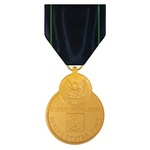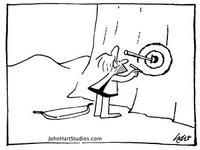More long line ammo testing
+4
Jack H
Chris Miceli
Magload
SMBeyer
8 posters
Page 1 of 1
 More long line ammo testing
More long line ammo testing
I have been shooting my own cast bullets for about three years now and made high master with them. I started with a couple of NOE molds that were in stock but only shot the one that dropped at 170gr for the short line. The other mold was a hollow point mold and was a major PITA to cast with for a complete beginner. I then ordered a mold from Accurate Molds and had him take his copy of the H&G68 and shorten the nose a little to cut some weight. These bullets shot REALLY well with a .469 crimp. After a couple of years hand casting with a ladle I decided to make my life easier and bought a Magma Master Caster. I ordered the same mold in a two cavity from Accurate for the Master Caster as I was using before except in .452 instead of .453 like the hand cast mold. Towards the end of the year last year I finally ran out of hand cast bullets and switched to machine cast bullets and kinda struggled at the long line. Didn't really do any testing on ammo just figured I was doing something wrong. So now i'm switched over to all machine cast. Hand cast bullets are all gone. A few months ago a friend loaned me a Dillon 1050 try. Since I was changing bullets and reloader and having to set dies for crimp I decided to do testing. This friend told me that many years ago (I believe he said Giles) did testing on crimp and found .463 was the best cast bullet crimp he found. I thought that sounded a little much but what am I out and decided to try some different crimps. So the other day I went to the range with .469, .465, and .463. These are my bullets that drop at about 193gr sized to .4515, CCI primers, once fired starline brass amd 4gr of bullseye.



The .463 looked the most promising so I shot another group of them.

I was kinda shocked at the variation of groups from just crimp.
Scott



The .463 looked the most promising so I shot another group of them.

I was kinda shocked at the variation of groups from just crimp.
Scott

SMBeyer- Posts : 375
Join date : 2011-12-07
Age : 52
Location : Southern Illinois
 Re: More long line ammo testing
Re: More long line ammo testing
Scott now you got me thinking I need to do some crimp testing. I am at .465 right now but am wondering if .463 might tighten the group up a little. How tight can one crimp with out causing problems? Will the group start opening up when you reach a certain point. I shot a lot of coated and plated bullets when I IDPA and crimped to the point I wasn't hurting the plating but this BE is a different game. What shot fine out to 10yds wouldn't make practice bullets for the LL. Don't ask me how I know. Don

Magload- Posts : 1173
Join date : 2016-11-18
Age : 77
Location : NE Florida
 Re: More long line ammo testing
Re: More long line ammo testing
bullet diameter + case thickness x2 = what
Chris Miceli- Posts : 2715
Join date : 2015-10-27
Location : Northern Virginia
 Re: More long line ammo testing
Re: More long line ammo testing
Says Giles:
From In My Experience
Dec 1992 American Rifleman
More On Taper Crimp
Editor:
In my gunsmithing days ('51-'83) I specialized in target pistols, primarily .45s. Early on I would get customer complaints where the gun failed to go completely into battery, i.e. the slide did not go all the way forward. Nearly always the cause was a reload with a short case.
The case had been flared to receive the bullet and the standard roll crimp did not quite remove the flare. Or alternatively, the customer believed the case should not be crimped at all and the roll crimp failed to straighten the flare which would hang up in the taper of the .45 chamber. The answer, of course, was to sort the cases carefully, eliminating the short ones. As usual, not everyone wanted to bother.
Another disadvantage of the roll crimp was that the degree of crimp varied directly with the length of the case. Long case, hard crimp - short case, no crimp. This caused not only malfunction but inaccuracy as well. Since I test fired every gun at least 100 rounds and guaranteed a specific level of accuracy. I looked for a way to avoid trimming all cases to a standard length. But I could not afford to discard the short ones.
My previous toolmaking and inventing experience led me to the tapered crimp. It requires a separate operation, of course, but has several advantages over the roll crimp.
One was that a slight difference in case length made little difference in the degree of crimp.
Another was that cases lasted a lot longer before splitting. The taper crimp did not “work“ case mouth brass as severely as the roll crimp. Crimp-caused malfunctions were eliminated.
The taper crimp also prevented telescoping, where the bullet slides back in the case when it hits the loading ramp.
Finally I seldom had to discard a case because it was short. So what kind of accuracy are we talking about for these taper crimped reloads? First a bit more history.
It soon became apparent that my time would be better spent if I bought reloads even though I had two Star reloaders. Fortunately, I knew a few really capable reloaders. Gene Wilson and Joe Maszk come to mind. Frank Shuster was a top bullet caster also. Joe Mazak loaded sample quantities of those good bullets with powder charges from 3.3 to 4.4 grs. of Bullseye, taper crimped to about .463” at the case mouth gave the best accuracy. Cases were all one kind and loaded on Joe's Star machine. Seldom did I see factory ammo that would shoot as well, and when I did, the military guys had it.
And the numbers? Well, I made more than 4,000 target .45s over the years and must certainly have fired at least half a million taper crimped .45 reloads. I guaranteed each .45 capable of shooting five shots into 1-3/4 in at 50 yds. and fired an average 1-1/4 in test group. My personal best from a Colt .45 was 5 shots in .39 in. at 50 yds. And I had a fair number of groups at sub in. Under 1 in. was not uncommon at all. I didn't always send the best test group with the pistol but I did always include loading data. I designed a taper crimper for the Star machine so there was no extra operation. Ernest Whalen of Heatbath Corp. made and marketed the taper crimper for a number of years, paying a small royalty for use of my design.
My customers had most of the above info. Guess I should have made it available to all handgunners. But I tend to put things off, like trimming cases, for instance.
John E. Giles Odessa, Fla
From In My Experience
Dec 1992 American Rifleman
More On Taper Crimp
Editor:
In my gunsmithing days ('51-'83) I specialized in target pistols, primarily .45s. Early on I would get customer complaints where the gun failed to go completely into battery, i.e. the slide did not go all the way forward. Nearly always the cause was a reload with a short case.
The case had been flared to receive the bullet and the standard roll crimp did not quite remove the flare. Or alternatively, the customer believed the case should not be crimped at all and the roll crimp failed to straighten the flare which would hang up in the taper of the .45 chamber. The answer, of course, was to sort the cases carefully, eliminating the short ones. As usual, not everyone wanted to bother.
Another disadvantage of the roll crimp was that the degree of crimp varied directly with the length of the case. Long case, hard crimp - short case, no crimp. This caused not only malfunction but inaccuracy as well. Since I test fired every gun at least 100 rounds and guaranteed a specific level of accuracy. I looked for a way to avoid trimming all cases to a standard length. But I could not afford to discard the short ones.
My previous toolmaking and inventing experience led me to the tapered crimp. It requires a separate operation, of course, but has several advantages over the roll crimp.
One was that a slight difference in case length made little difference in the degree of crimp.
Another was that cases lasted a lot longer before splitting. The taper crimp did not “work“ case mouth brass as severely as the roll crimp. Crimp-caused malfunctions were eliminated.
The taper crimp also prevented telescoping, where the bullet slides back in the case when it hits the loading ramp.
Finally I seldom had to discard a case because it was short. So what kind of accuracy are we talking about for these taper crimped reloads? First a bit more history.
It soon became apparent that my time would be better spent if I bought reloads even though I had two Star reloaders. Fortunately, I knew a few really capable reloaders. Gene Wilson and Joe Maszk come to mind. Frank Shuster was a top bullet caster also. Joe Mazak loaded sample quantities of those good bullets with powder charges from 3.3 to 4.4 grs. of Bullseye, taper crimped to about .463” at the case mouth gave the best accuracy. Cases were all one kind and loaded on Joe's Star machine. Seldom did I see factory ammo that would shoot as well, and when I did, the military guys had it.
And the numbers? Well, I made more than 4,000 target .45s over the years and must certainly have fired at least half a million taper crimped .45 reloads. I guaranteed each .45 capable of shooting five shots into 1-3/4 in at 50 yds. and fired an average 1-1/4 in test group. My personal best from a Colt .45 was 5 shots in .39 in. at 50 yds. And I had a fair number of groups at sub in. Under 1 in. was not uncommon at all. I didn't always send the best test group with the pistol but I did always include loading data. I designed a taper crimper for the Star machine so there was no extra operation. Ernest Whalen of Heatbath Corp. made and marketed the taper crimper for a number of years, paying a small royalty for use of my design.
My customers had most of the above info. Guess I should have made it available to all handgunners. But I tend to put things off, like trimming cases, for instance.
John E. Giles Odessa, Fla

Jack H- Posts : 2698
Join date : 2011-06-10
Age : 75
Location : Oregon
 Re: More long line ammo testing
Re: More long line ammo testing
My experience is that the lighter the powder charge, the more the crimp can influence the group and sometimes there is a relationship with crimp and barrel leading.
With Oregon Trail bullets and VV310 my groups got bigger in either direction above 0.471 and below 0.468
What is the powder & charge for the tested loads?
Just curious.
CR
With Oregon Trail bullets and VV310 my groups got bigger in either direction above 0.471 and below 0.468
What is the powder & charge for the tested loads?
Just curious.
CR
CR10X- Posts : 1777
Join date : 2011-06-17
Location : NC
 Re: More long line ammo testing
Re: More long line ammo testing
SMBeyer, what brand of dies (especially crimp) are you using? I assume that you are taper crimping, right?

BE Mike- Posts : 2585
Join date : 2011-07-29
Location : Indiana
 Re: More long line ammo testing
Re: More long line ammo testing
load is 4.0 of bullseye.
dies are standard Dillon
dies are standard Dillon

SMBeyer- Posts : 375
Join date : 2011-12-07
Age : 52
Location : Southern Illinois
 Re: More long line ammo testing
Re: More long line ammo testing
This is anecdotal data. Interesting but it doesn't tell the whole story.
The bullets used were cast, but what alloy? What mold? Diameter? The taper crimping die was his design, but what taper was used? Is it the same as current production from Redding or RCBS? Lots of variables unsaid.
The bullets used were cast, but what alloy? What mold? Diameter? The taper crimping die was his design, but what taper was used? Is it the same as current production from Redding or RCBS? Lots of variables unsaid.

Wobbley- Admin
- Posts : 4803
Join date : 2015-02-12
MkFiji likes this post
 Re: More long line ammo testing
Re: More long line ammo testing
I mentioned several years ago that I found the .463 crimp to give the best accuracy. I was using 200 gr LSWC cast by T&B Bullets. I didn't have to search for that crimp. When Roddy Toyota re-built my GC he told me to be sure and crimp them to .463...Never argue with your gunsmith.
Len
Len

LenV- Posts : 4768
Join date : 2014-01-24
Age : 74
Location : Oregon
 Similar topics
Similar topics» Testing for long line AND short line
» Testing 32Long bullets for the short line?
» Some interesting data from the long line/outshooting my ammo
» Make Ammo for the Long Line, or Adjust the Sights?
» Jacketed for the long line Lead Wad Cutter for the short line during the same match.
» Testing 32Long bullets for the short line?
» Some interesting data from the long line/outshooting my ammo
» Make Ammo for the Long Line, or Adjust the Sights?
» Jacketed for the long line Lead Wad Cutter for the short line during the same match.
Page 1 of 1
Permissions in this forum:
You cannot reply to topics in this forum